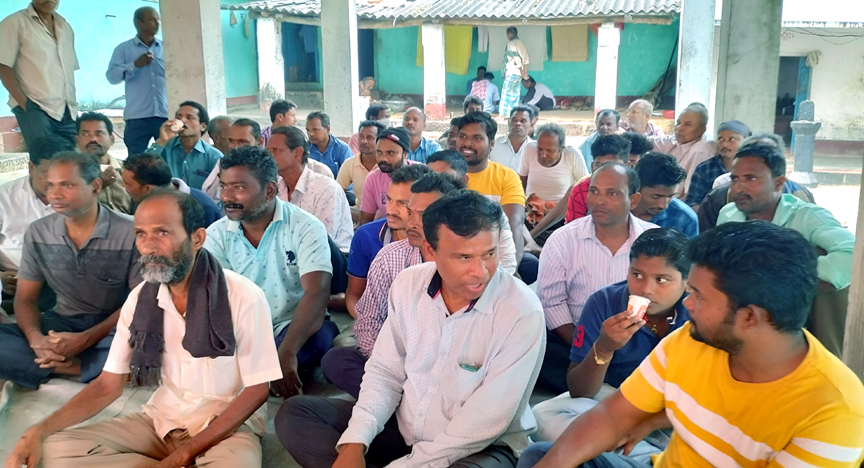Jajpur: More than a month ago the Odisha government decided to start mining of the Parabhadi hill at Bandareswar and Kesaraipur localities under Darpan tehsil in Jajpur for stones that would be required for the beautification of Puri town. However, local residents Monday vehemently opposed the government’s decision. They said that Parabhadi hill is a historic site and has an ancient Buddhist structure. It is on the verge of extinction due to lack of conservation and proper maintenance, they alleged.
Hundreds of villagers from Bandareswar, Kesaraipur, Sukhuapada, Palai, Lalitgiri, Chandia and Teligarh gathered Monday morning at Languli Mutt to voice their protests against the state government.
The protestors said destroying the historic Parabhadi hill for beautification of Puri town is unjust and illogical. A memorandum in this regard will soon be given to the government urging it to withdraw its decision. They warned of widespread agitation if their demands were not met.
Also read: Trader selling ‘killer’ kite strings detained in Cuttack
“The historical stupa built in third century AD is the oldest of ancient Buddhist stupas located in the Diamond Triangle of Jajpur district. The Archeological Survey of India (ASI) has not spent a single paise on its maintenance since its discovery for which it is inching towards extinction,” local intellectual and convener of ‘Buddhayan’, Pradipta Kumar Bhuyan said.
According to the sources, the Odisha Mining Corporation (OMC) Limited will carry out the mining activities and arrange to send the excavated stones to Puri.
It has been also decided that a patch of the hill area of around 114 acres at Sukhuapada under Bandareswar mouza and around 47 acres under Kesaraipur mouza will be mined in the first phase. The OMC has already applied for environment clearance to conduct the mining activities.
When contacted, local tehsildar Pradeep Sethi said, “Necessary steps are being taken after the government decided to conduct mining for acquiring khandelite stones from the Parabhadi hill. However, the location where the Buddhist stupa stands will not be touched.”
It is pertinent to mention here that ASI took charge of the stupa in 1994. However, so far, it has neither excavated the site nor worked for its conservation.
In 2005, the Parabhadi hill was partly leased out, which was opposed by a local outfit named ‘Buddhayan’. The outfit had filed two PILs in Orissa High Court February 23, 2005 and September 29, 2005. In the pleas it appealed to the court to order the government for cancellation of the accorded lease.
The court ordered accordingly, acting on which erstwhile District Collector of Jajpur Saswat Mishra along with a team inspected the Parabhadi hill and suggested in his report that it should not be mined under any circumstances whatsoever. As a result of which, the lease was cancelled.
The Buddhist stupa was discovered at the same time when historians discovered the world famous Lalitgiri shrine and undertook its excavation in between 1975 and 1982.
The ASI had then claimed the necessity for excavation and conservation of the Buddhist stupa. However, it did has done nothing so far. The Parabhadi stupa was 40 feet high structure when the ASI took the site in its possession. Due to constant soil erosion and for several other reasons the height of the stupa has come down to 15 feet.
Noted historian and Buddhist researcher Harish Chandra Prusty said that the Parabhadi stupa was discovered when Chinese traveller Hiuen Tsang visited Odisha during his India tour. He visited the site and conducted a review of the ancient stupa. The stupa finds its mention in the ‘Si-yu-ki’ book written by the Chinese traveller.
PNN
